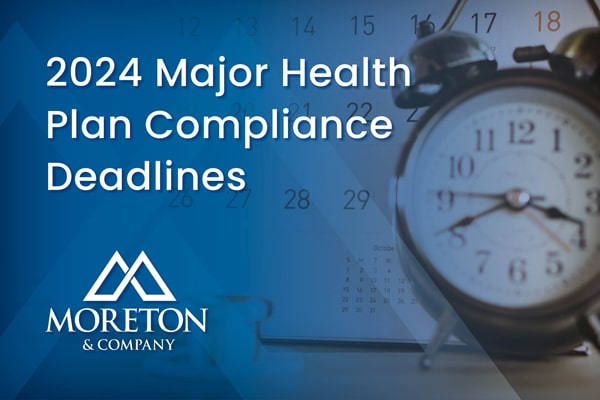New Rule Bases Eligibility for
ACA Premium Tax Credits on
Family Coverage Affordability

Client Alert Applies To: Self-Funded, Fully-Funded, Large Group, and Small Group
The IRS has finalized regulations that change the eligibility standards for an Affordable Care Act (ACA) premium tax credit (PTC) by providing that, for taxable years beginning in 2023, affordability of employer-sponsored coverage for an employee’s family members are based on the employee’s cost to cover the employee and those family members, rather than the cost of employee-only coverage. (Note that for purposes of the employer shared responsibility (i.e., penalty) provisions, affordability continues to be based on the cost of employee-only (not family) minimum value coverage.) The IRS also issued related guidance allowing certain additional cafeteria plan election changes. Historically, the ACA established PTCs for individuals enrolled in a qualified health plan (QHP) through an Exchange. However, an individual is not eligible for a PTC if, among other limitations, the individual is eligible for affordable, minimum-value coverage under an employer-sponsored plan. Employer-sponsored coverage is considered affordable if the required employee contribution for self-only coverage does not exceed 9.5% of the employee’s household income. (The 9.5% threshold is indexed.) Currently, the minimum value is determined solely by reference to the employee’s coverage. The existing regulations provide that if self-only, minimum value coverage under an employer-sponsored plan is affordable for an employee, then the coverage is also affordable for a spouse with whom the employee is filing a joint return and any dependents of the employee who may be eligible to enroll in the employer coverage. Accordingly, neither the spouse nor dependents would qualify for a PTC, regardless of the required employee contribution for their coverage or whether their coverage provides minimum value. This has sometimes been referred to as the “family glitch.”
Because the IRS has concluded that the ACA should be interpreted to require separate affordability determinations for employees and related individuals, the regulations have been amended to provide that an eligible employer-sponsored plan is affordable for related individuals (disqualifying them from a PTC) only if the required employee contribution for family coverage does not exceed 9.5% (indexed) of household income. For this purpose, family coverage is defined as any employer plan that covers any related individual other than the employee, including a self-plus-one plan. The regulations also establish a separate minimum value rule for related individuals. Thus, regardless of the plan’s cost, related individuals do not lose PTC eligibility if the offered employer plan did not provide them minimum value coverage. In addition, the IRS finalized a regulation that expands the definition of minimum value to require substantial coverage of inpatient hospital services and physician services.
Related IRS guidance allows participants in non-calendar-year cafeteria plans to revoke their elections for family coverage to allow one or more family members to enroll in a QHP. Under this guidance, non-calendar-year cafeteria plans can be amended to allow prospective midyear election changes from family coverage to an employee-only coverage (or family coverage including one or more already-covered related individuals) under a group health plan that is not a health FSA and provides minimum essential coverage if the following conditions are satisfied: (1) one or more related individuals are eligible for a special enrollment period to enroll in a QHP, or one or more already-covered related individuals seek to enroll in a QHP during the Exchange’s annual open enrollment period; and (2) the election change corresponds to the intended QHP enrollment for new coverage effective no later than the day immediately following the last day of the revoked coverage. Plans may rely on the employee’s reasonable representation regarding enrollment or intended enrollment in a QHP. The guidance is effective for elections that are effective on or after January 1, 2023. Amendments must be adopted on or before the last day of the plan year in which the changes are allowed and may be effective retroactively to the first day of that plan year if the plan operates in accordance with the guidance and participants are informed of the amendment. However, amendments for a plan year beginning in 2023 can be adopted on or before the last day of the plan year beginning in 2024.
Again, nothing in this new regulation affects how the ACA employer penalties are assessed (based on the cost of employee-only coverage), nor does it change ACA reporting requirements. The IRS also advises that the affordability safe harbors that an employer may use to determine affordability for purposes of the employer-shared responsibility provisions under Code § 4980H continue to be available.
© 2022 by Moreton & Company. This Client Alert is intended to alert recipients to recent legal developments. It does not constitute the rendering of legal advice or recommendations and is provided for your general information only. If you need legal advice upon which you can rely, you must seek an opinion from your attorney.


